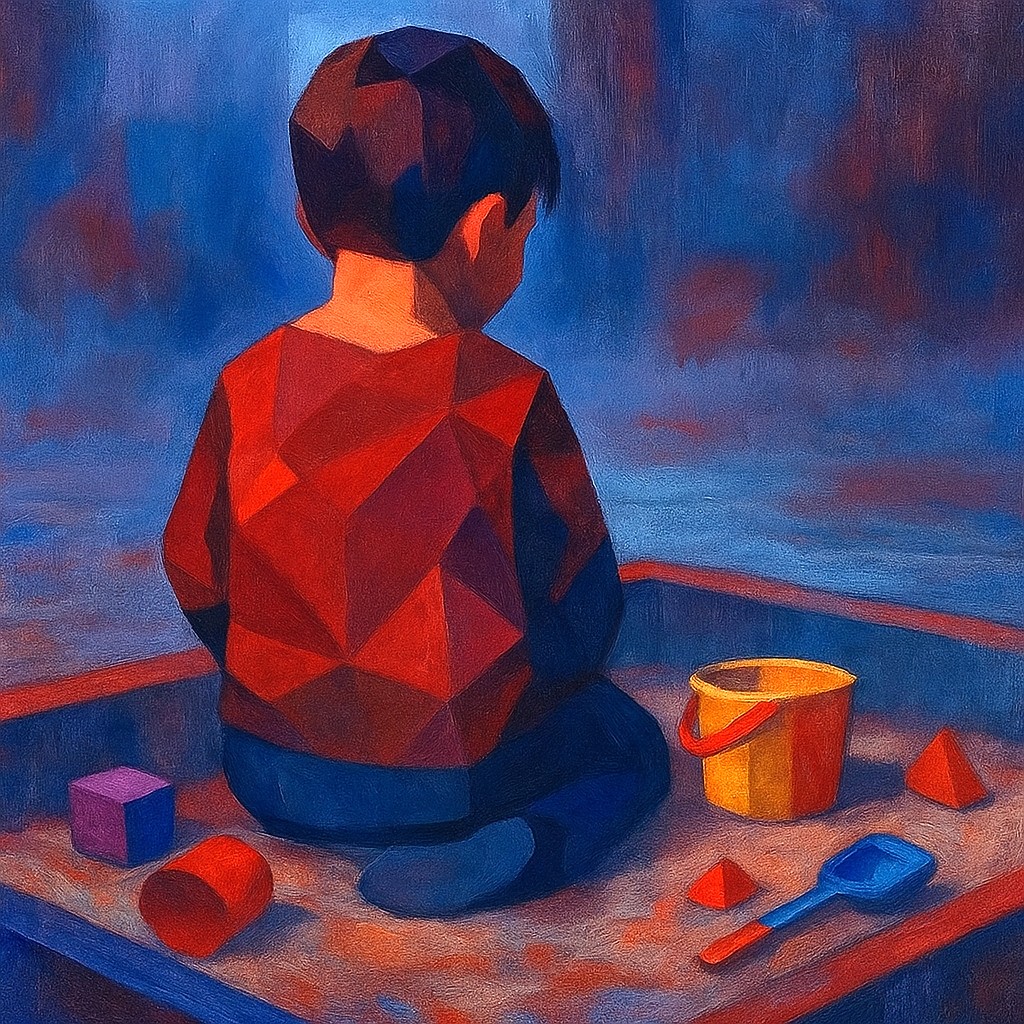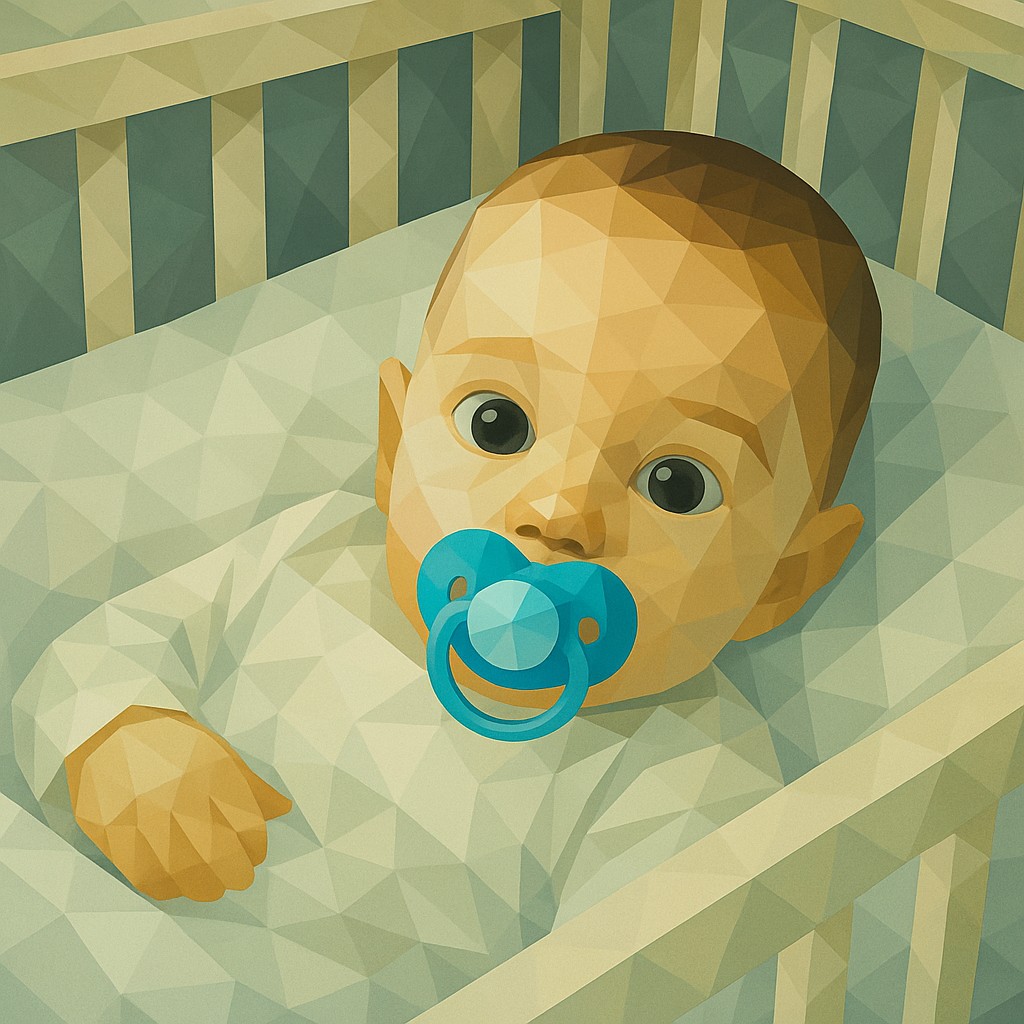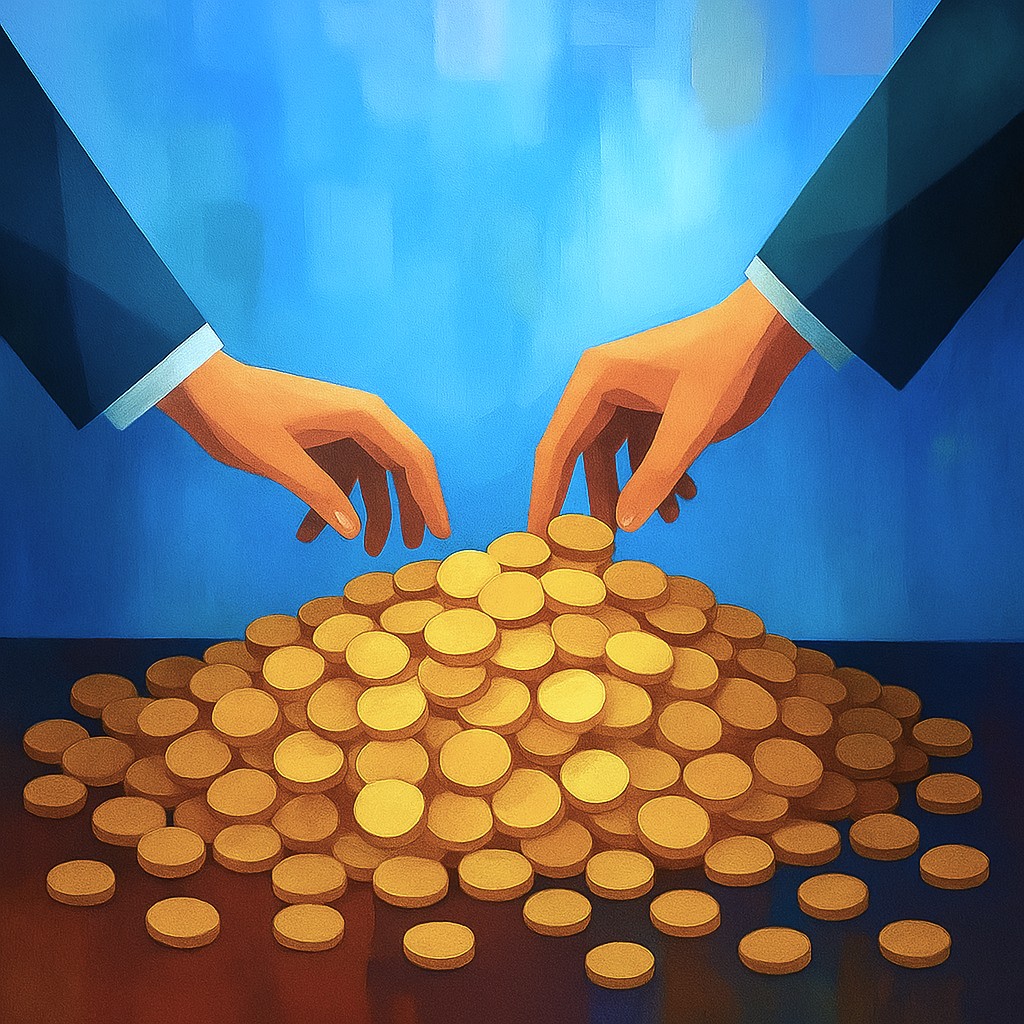The Lawlessness of Childhood
Adults are peaceful because we get protection from police and the judiciary. If we want our children to do the same, we need to radically rethink things.

Ki-generated illustration from Sora
Main moments
Are children condemned to live with bullying, violence and other unpleasant experiences? A scene from Andrev Walden's “Fucking Men” has made me dream of another society where children are protected through institutions that take care of them in a better way than kindergarten and school do today.
Walden tells of an episode where, as a kid, he's out with his cool new BMX bike. He has made jumps in the sandbox and jumps and skids, with a small hope that someone will catch on to what amazing skills he demonstrates. He will regret that wish. Three children are on their way, with other intentions than to get excited. As self-appointed guardians of law and order, they demand that the sand must be returned to its original state, for the sake of the children who will play there the morning after.
There is no doubt about the true intent. Little Andrev understands that they are only doing it to demean him; they seek the pleasure in forcing someone else to do something just because they can. Andrev throws himself on his bike with the keepers in tow. But when he the door at home he fumbles with the keys and the attackers get hold of him. Two holds and one strikes.
This scene made me think back to the vulnerability and violence of my childhood. Similar scenarios play out for many children. I'm not just thinking about bullying, repeated harassment, which, according to the Directorate of Education, frames 1 in 10 children. Childhood lawlessness in the form of beatings, torment, exclusion and general insecurity affects many more, although it is not always considered bullying.
One possible explanation for bullying and violence among children is that children have not developed an adequate understanding of consequences. That could explain why it is more bullying in elementary school than high school.
But I think a more important reason, is that the children live in a much more lawless world than our own. Many children who molest other children do so because they know that if they don't join in, it's them themselves who stand in for the ride.
What makes adults relatively peaceful is not our prudence, but that we have institutions that protect us from abusers. Police and courts only need to intervene in particular cases, but the knowledge that the laws and rules are there to protect us, makes us more peaceful.
“Nasty, brutish, and short,” was the 17th-century British philosopher Thomas Hobbes' description of the lawlessness that characterizes societies without a legal order. A notable part of Hobbes' analysis is that violence occurs even though everyone wants peace. Fearing our neighbour will take us at our most vulnerable, we go to attack first to protect ourselves. In game theory, this phenomenon is known as the Hobbesian trap.
If we are to live in peace with our neighbor, we need a Leviathan, an effective monopoly of violence, that complies with laws and regulations. It also needs the children.
Misunderstand me right. What I want is no more control from school and kindergarten. The children are already alive Reinstitutionalized life.
Institutions can't stop the lawlessness of childhood. All children know that adults do not get along with everything that happens and only to a limited extent manage to prevent unwanted behavior. No matter how many anti-bullying campaigns the adults initiate, the young know they are left to themselves.
It's not obvious that stronger institutions are the answer. School is the place where much of the tormenting takes place and where the children have no choice but to return, day after day. Institutions can be tyrannical, as Ole Martin Moen describes well in his book”School neglect“.
I also do not want more student councils and processes for participation. Many attempts to make preschool and school more sensitive to children's interests and ensuring them real co-determination in the institutions they are part of are good, but I dream of something more radical.
What I dream of are laws for and by the children. Children are already participating in proto-democratic processes. But for these to be effective, the laws must be enforced by the children themselves and not least made in the knowledge that the children will enforce their own rules. That the children have “skin in the game”, that something is at stake in the design of the rules, is essential.
If children have to take responsibility for their own order and find transparent ways to punish offenders, children are empowered to deal with rowdy behaviour when it occurs. It will make enforcement more effective, since the kids who don't want bad behavior will always outnumber those who want it. It will also be more effective compared to the current model, since there are many more children than adults.
One concern is that this will lead to the Lord of the Flies, but as Rutger Bregman shows in his book Humankind, reality has brighter narratives to offer, about children's ability to live in harmony if they have to make and enforce their own rules.
Of course, there must be limits to what methods of punishment the children can make. If I am going to counsel the children, I would suggest conflict advice rather than prison and the death penalty.
But if lawlessness drives much of the mischief we see among children, we should not expect draconian laws and methods of punishment. We should be careful not to draw hasty inferences about the nature of children from a life of a lawless existence.
It is time that we helped the children out of the harsh conditions of lawlessness, perhaps by even stepping aside and letting the children sort it out for themselves.
More from Langsikt

A new project for the state: The baby package
Stewardship of the natural resources and the welfare state are two of our nation's greatest triumphs. What is the next big project for A/S Norway?

Here are two suggestions for how the Oil Fund can be run ethically
When we invest in companies that contribute to violations of international law, we profit from the suffering of others. That's not necessarily problematic.

Preserving the wealth tax is good conservative policy
The wealth tax is an insurance against the greater vulnerability of the tax system, writes Aksel Braanen Sterri in a reply to Eirik Løkke.

Can't we trust the rich?
The country's richest are not fulfilling their part of the societal contract.